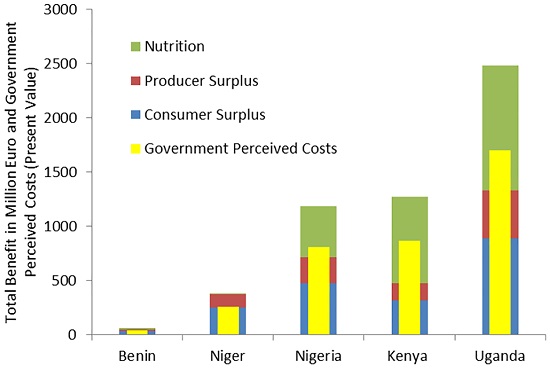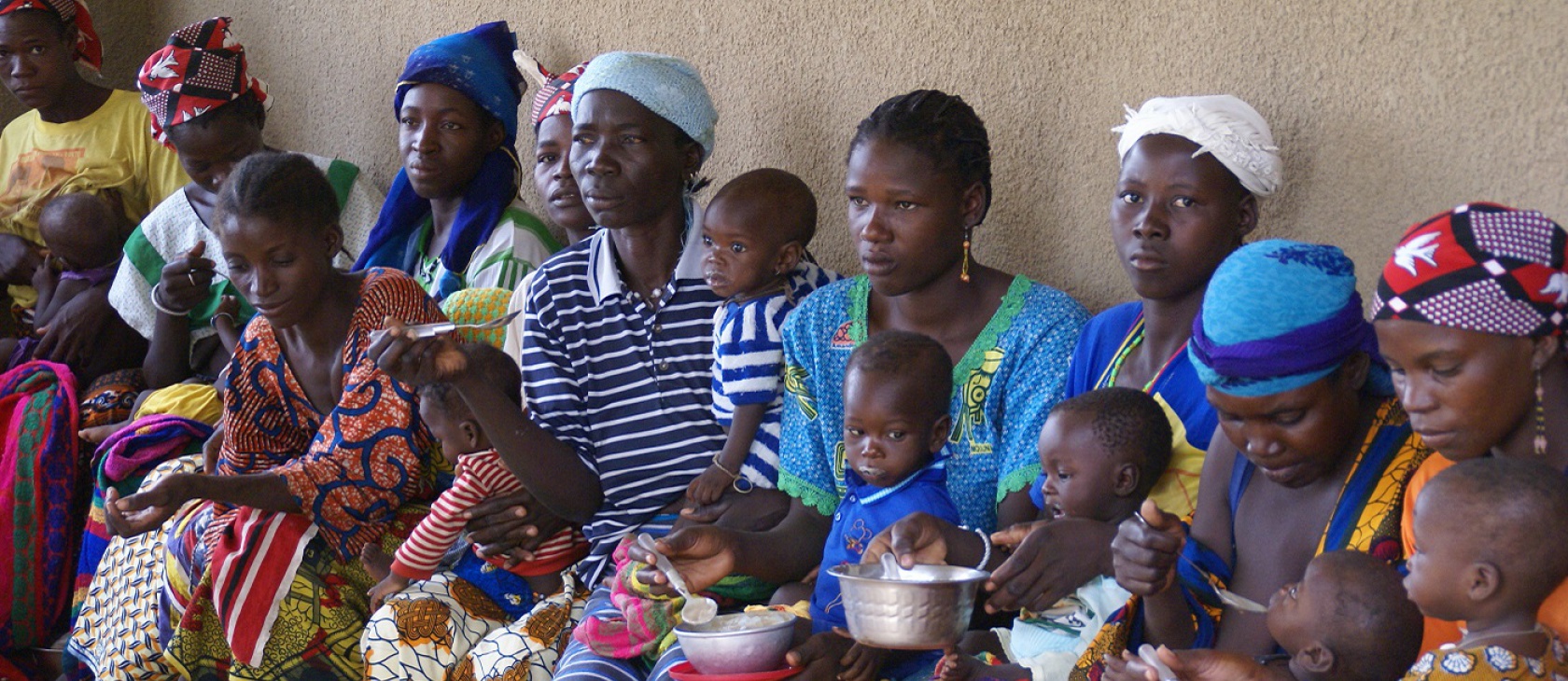Commentators have long said that banning genetically modified food (GMOs) harms human flourishing. Thanks to a new study, that harm can now be quantified.
A study published in late July studies the impact of delaying the approval of GMOs in five nations: Benin, Kenya, Niger, Nigeria, and Uganda.
The researchers – who hail from the Netherlands, Germany, South Africa, and the United States (surprisingly enough, from the University of California at Berkeley) – analyzed the effects of political decisions to delay the introduction of three GMO crops: the disease-resistant cooking banana (matoke), and insect-resistant varieties of black-eyed peas (cowpea) and corn (maize).
Specifically, they estimated how much denying five African nations these GMOs cost in terms of their agricultural production, costs associated with malnutrition, and deaths.
“The costs of a delay can be substantial,” the authors write. A “one-year delay in approval of the pod-borer resistant cowpea in Nigeria will cost the country about 33 million USD to 46 million USD and between 100 and 3,000 lives.”
Introducing all three crops would generate up to an additional $562 million for consumers and producers.
That rises to as much as $818 million over 10 years, when researchers include the economic benefit of reducing malnutrition. In Kenya, that amount exceeds the amount raised by new crop revenues.
Thousands of deaths due to GMO restrictions
The most impactful statistic is the number of Africans who have died because of GMO policy. “The number of lives lost by delaying the introduction range between about 200 and 5,500,” their report states. “If Kenya had adopted GE [genetically engineered] corn in 2006 – according to the reports of the IRMA project this was possible – between 440 and 4,000 lives could theoretically have been saved.”
Delaying these crops’ introduction in Africa will cost as many as 38,857 Africans their lives over the next decade, they found.

Yet African leaders have proven reticent to introduce GMO crops, due in large part to EU policy and the stance of European-based NGOs. In 2002, the then-president of Zambia refused to give his starving people U.S. food aid, because it contained genetically modified corn (maize) – which he called “poison.”
EU labeling laws and publicity campaigns have little to do with “settled science” on the issue. The European Union surveyed a decade of testing on the safety of transgenic crops and found that “biotechnology, and in particular GMOs, are not per se more risky than e.g. conventional plant breeding technologies.” But if scientific data are not driving EU policy, what is?
Innocent victims of a trade war
“The reasons for the EU's anti-GMO stance, ostensibly, are health concerns,” writes Marian Tupy at Reason. “In reality, the EU is trying to protect its farmers against their more productive American competitors.”
In this trade war, African farmers are caught in the crossfire. Labeling African food exports as GMOs would effectively shut them out of many European markets.
Anti-GMO policies are only one way the EU puts African farmers at a disadvantage. Tariffs also reduce the continent’s food exports. Its Common Agricultural Policy (CAP) imposes an 18 percent tariff on imported food.
Oxfam calculated more than a decade ago that EU agricultural policies cost the average British family an extra £832 ($1,130 U.S.) a year in higher grocery bills.
“Not only does the Common Agricultural Policy hit European shoppers in their pockets but strikes a blow against the heart of development in places like Africa,” said Claire Godfrey, Oxfam’s trade policy adviser in 2006.
CAP cost Mozambique alone an estimated $95 million annually.
That does not account for the ways CAP import taxes stunt the growth and inhibit the diversification of the African economy. The structure of EU tariffs keep Africans locked into a role as a raw materials exporter; its tariffs disincentivize Africans from creating value-added, refined products – or developing the capacity to create them. Those products fetch higher prices on international markets, and the spill-over effect of that knowledge often spurs growth outside that specific domestic industry. This is also denied to Africa.
Brexit could give the British people the opportunity to jettison CAP, lower food prices, and increase human flourishing. However, this depends on its decisions to be part of the Single Market and its post-Brexit trade policy.
Malthus or mankind
Since the time of Thomas Malthus, society has been divided into two camps. One sees the earth’s resources as fixed, finite, and insufficient. Another understands that the human mind, made in the image of the Creator, has the capacity to transform raw materials in ways that can exponentially multiply their impact. Increased crop yields, technological advances, and innovation allow more people to be sustained with fewer resources. This camp recognizes the reality of scarcity but trusts that, left free to pursue their intellectual passions, human beings will continue to find ways to improve the overall health and well-being of all the children of God. People of faith should tear down economic, or ideological, barriers that prevent the spread of lifesaving agricultural techniques. And Christians must embrace the spread of empowering, vivifying technologies – and the free economic system that best facilitates their development.
(Photo credit: CIDSE. This photo has been cropped. CC BY 2.0.)




